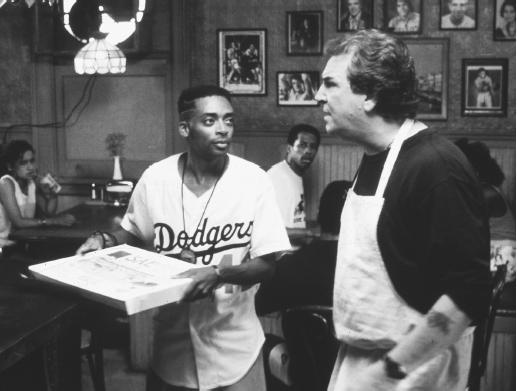


'At the end of daybreak. . .
Beat it, I said to him, you cop, you lousy pig, beat it,
I detest the flunkies of order and the cockchafers of hope.
Beat it, evil grigri, you bedbug of a petty monk. Then I turned
toward paradises lost for him and his kin, calmer than the face
of a woman telling lies, and there, rocked by the flux of a
never exhausted thought I nourished the wind, I unlaced the
monsters and heard rise, from the other side of disaster, a
river of turtledoves and savanna clover which I carry forever
in my depths height-deep as the twentieth floor of the most
arrogant houses and as a guard against the putrefying force
of crepuscular surroundings, surveyed night and day by a cursed
venereal sun.
At the end of daybreak burgeoning with frail coves, the hungry
Antilles, the Antilles pitted with smallpox, the Antilles dyn-
amited by alcohol, stranded in the mud of this bay, in the dust
of this town sinisterly stranded.
At the end of daybreak, the extreme, deceptive desolate eschar
on the wound of the waters; the martyrs who do not bear witness;
the flowers of blood that fade and scatter in the empty wind
like the screeches of babbling parrots; an aged life mendacious-
ly smiling, its lips opened by vacated agonies; an aged poverty
rotting under the sun, silently; an aged silence bursting with
tepid pustules,
the awful futility of our raison d'être.
At the end of daybreak, on this very fragile earth thickness
exceeded in a humiliating way by its grandiose future--the vol-
canoes will explode, the naked water will bear away the ripe
sun stains and nothing will be left but a tepid bubbling pecked
at by sea birds--the beach of dreams and the insane awakening.
At the end of daybreak, this town sprawled-flat, toppled from
its common sense, inert, winded under its geometric weight of
an eternally renewed cross, indocile to its fate, mute, vexed
no matter what, incapable of growing with the juice of this
earth, self-conscious, clipped, reduced, in breach of fauna
and flora.' -Notebook of a Return to the Native Land

1
Taped to the wall of my cell are 47 pictures: 47 black
faces: my father, mother, grandmothers (1 dead), grand-
fathers (both dead), brothers, sisters, uncles, aunts,
cousins (1st and 2nd), nieces, and nephews. They stare
across the space at me sprawling on my bunk. I know
their dark eyes, they know mine. I know their style,
they know mine. I am all of them, they are all of me;
they are farmers, I am a thief, I am me, they are thee.
I have at one time or another been in love with my mother,
1 grandmother, 2 sisters, 2 aunts (1 went to the asylum),
and 5 cousins. I am now in love with a 7-yr-old niece
(she sends me letters in large block print, and
her picture is the only one that smiles at me).
I have the same name as 1 grandfather, 3 cousins, 3 nephews,
and 1 uncle. The uncle disappeared when he was 15, just took
off and caught a freight (they say). He's discussed each year
when the family has a reunion, he causes uneasiness in
the clan, he is an empty space. My father's mother, who is 93
and who keeps the Family Bible with everbody's birth dates
(and death dates) in it, always mentions him. There is no
place in her Bible for "whereabouts unknown."
2
Each fall the graves of my grandfathers call me, the brown
hills and red gullies of mississippi send out their electric
messages, galvanizing my genes. Last yr/like a salmon quitting
the cold ocean-leaping and bucking up his birth stream/I
hitchhiked my way from LA with 16 caps in my pocket and a
monkey on my back. And I almost kicked it with the kinfolks.
I walked barefooted in my grandmother's backyard/I smelled the
old
land and the woods/I sipped cornwhiskey from fruit jars with the
men/
I flirted with the women/I had a ball till the caps ran out
and my habit came down. That night I looked at my grandmother
and split/my guts were screaming for junk/but I was almost
contented/I had almost caught up with me.
(The next day in Memphis I cracked a croaker's crib for a fix.)
This yr there is a gray stone wall damming my stream, and when
the falling leaves stir my genes, I pace my cell or flop on my bunk
and stare at 47 black faces across the space. I am all of them,
they are all of me, I am me, they are thee, and I have no children
to float in the space between.




